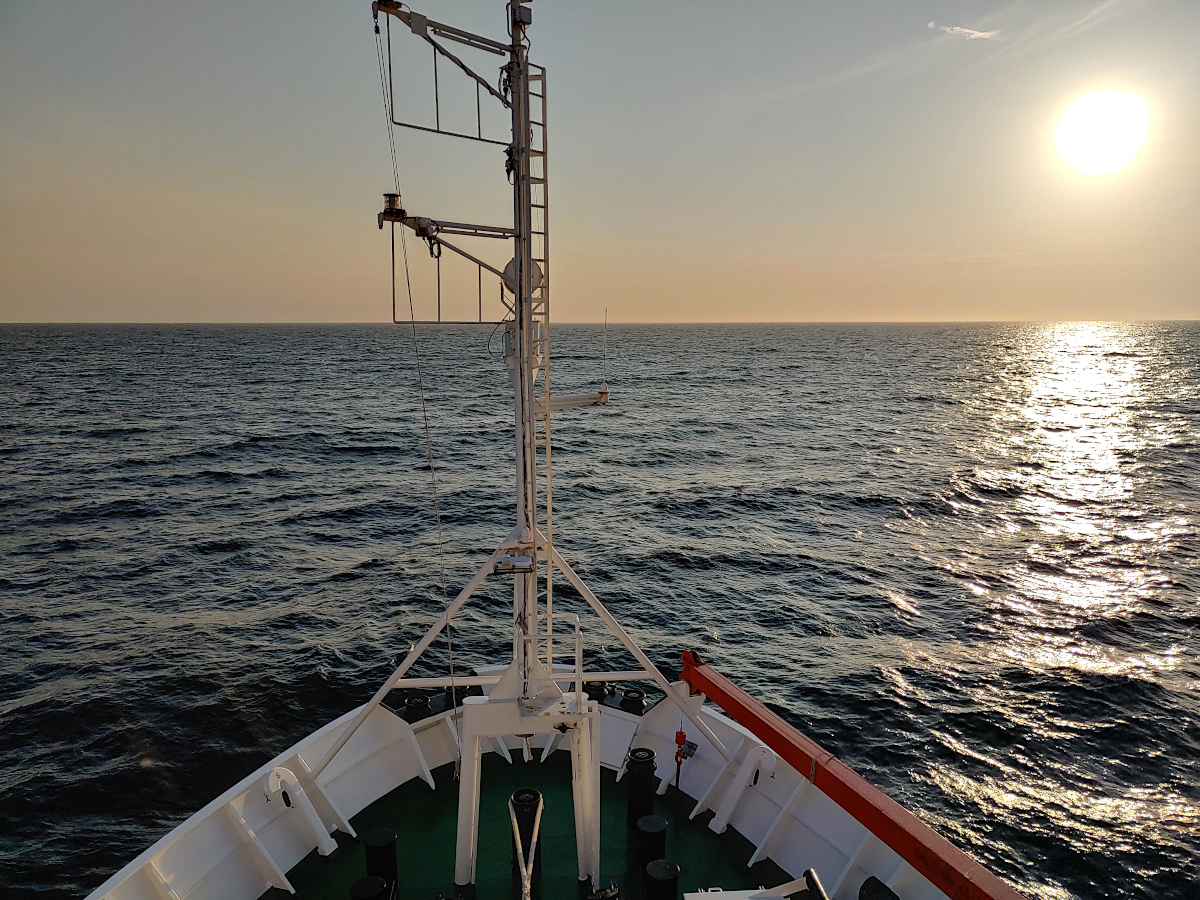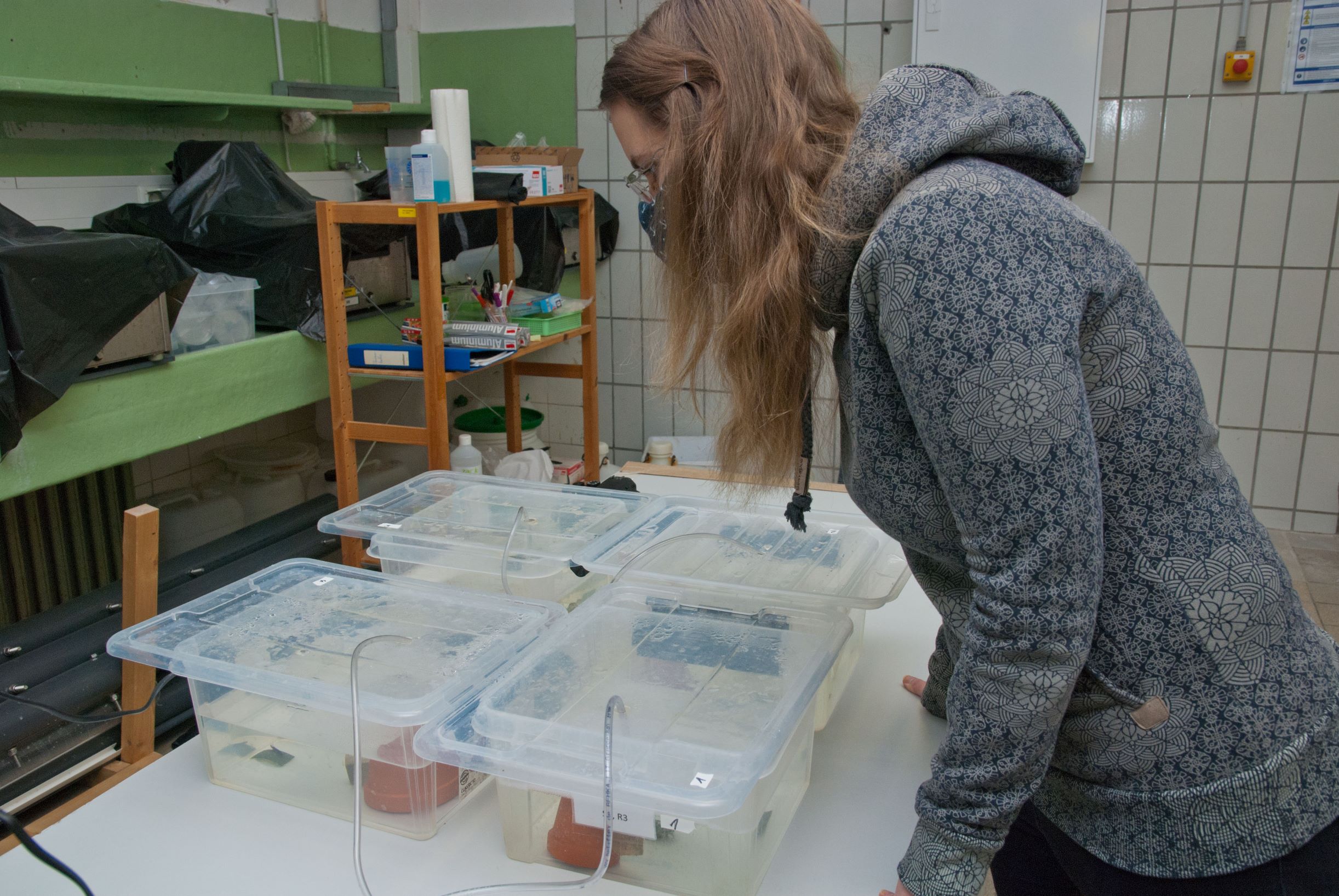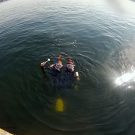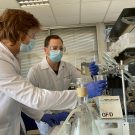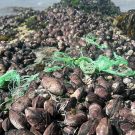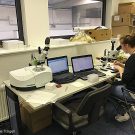After a one year, Corona-induced break, our integrative time series to assess long-term changes in Baltic Sea pelagic ecosystems finally continues, now running in its 35th year. It feels great to be back at sea after a two-year break and long preparations, overshadowed by the question whether we could really embark this time. In March […]
Plastic Pirates – Go Europe! – Ein Citizen-Science Projekt zur Erforschung der Müllverschmutzung am Fluss
Wie stark sind Europas Flüsse mit Müll belastet und was stellen die Hauptmüllquellen für die Müllverschmutzung dar? Auf genau diese und noch weitere Fragen möchte das Projekt „Plastic Pirates – Go Europe!“ Antworten finden. Die „Plastic Pirates“ sind ein Citizen Science-Projekt zur Erforschung der Müllverschmutzung europäischer Fließgewässer, welches im Rahmen der EU-Trio Ratspräsidentschaft in den […]
Test run for GAME 2021
Although, the coronavirus situation makes all kinds of international exchange and travelling very difficult, we are about to launch a new GAME project. It will certainly be different from what GAME projects used to be in previous years, but we are trying hard to maintain the concept, the philosophy and the spirit of the programme […]
Online Seminar zum Thema Plastikmüll
Die Akademie Sankelmark nimmt den Eurpean Green Deal zum Anlass, um in einem Online Europagespräch über das Thema Plastikmüll und seine Vermeidung zu diskutieren. Was möchte die EU mit dem Green Deal erreichen und was könnte die Umsetzung für uns alle bedeuten? Die Veranstaltung verspricht spannend zu werden, denn die Akademie hat Vertreterinnen und Vertreter […]
Mikroplastik im Strandanwurf: Publikationserfolg für Sinja Dittmann
Sinja Dittmann hatte im Sommer 2019 auf Oceanblogs bereits über ihre Masterarbeit zum Thema Mikroplastik im Strandanwurf berichtet. Es ging in ihrem Projekt darum, eine Methode zu entwickeln, die es erlaubt, die feinen Plastikpartikel aus den Ansammlungen von Algen und Seegras, die sich überall an unseren Ostseestränden finden, herauszuwaschen. Dies war eine Pionierarbeit, denn bislang […]
From lions and the jungle to the happiest country in the world: a story of success
Working on our Master’s projects with a view on the Table Mountain in Cape Town (South Africa) and being in the jungle of Penang (Malaysia) was what we, Annika and Luisa, expected for 2020 – until we finally ended up together in the exotic Scandinavian country of Denmark. It turned out to be one of […]
Life in plastic isn’t fantastic
“Moin” everyone from the base of GAME, the GEOMAR Helmholtz Centre for Ocean Research Kiel! We are Alisa Berning and Christin Baensch and together we form Team Kiel. As you might expect, GAME in 2020 is totally different from previous projects. The worldwide COVID-19 pandemic forced us to stay in Germany and conduct our experiment […]
Slowly but surely
Hola and greetings from Vigo, Spain. My name is Jacob, and I have the somewhat unique experience of being an American student in the Biological Oceanography master’s program at GEOMAR, participating in this year’s GAME project. After months of waiting for international travel to once again be possible, I am happy to report that I […]
GAME 2020: Researching the effects of plastic debris on the community level
On Monday March 2nd, the preparation course for the new GAME project will start and also in 2020 the programme will focus again on the effects of plastic litter on marine life. However, while previous research in this field has almost exclusively focused on the impact of macro- or micro-sized debris on single organisms, GAME […]
Mikroplastik in Ackerböden – Die übersehene Verschmutzung?
Mikroplastik wurde bereits im Meer, in Seen und in Flüssen gefunden. Doch wie sieht es eigentlich auf dem Land, insbesondere in den zur Nahrungsmittelproduktion genutzten Ackerböden, aus? Hierzu wissen wir noch so gut wie nichts. Deutschlandweit gibt es zurzeit nämlich erst eine Studie zum Thema Mikroplastik in Ackerböden. Und das obgleich mehr als 50% der […]
